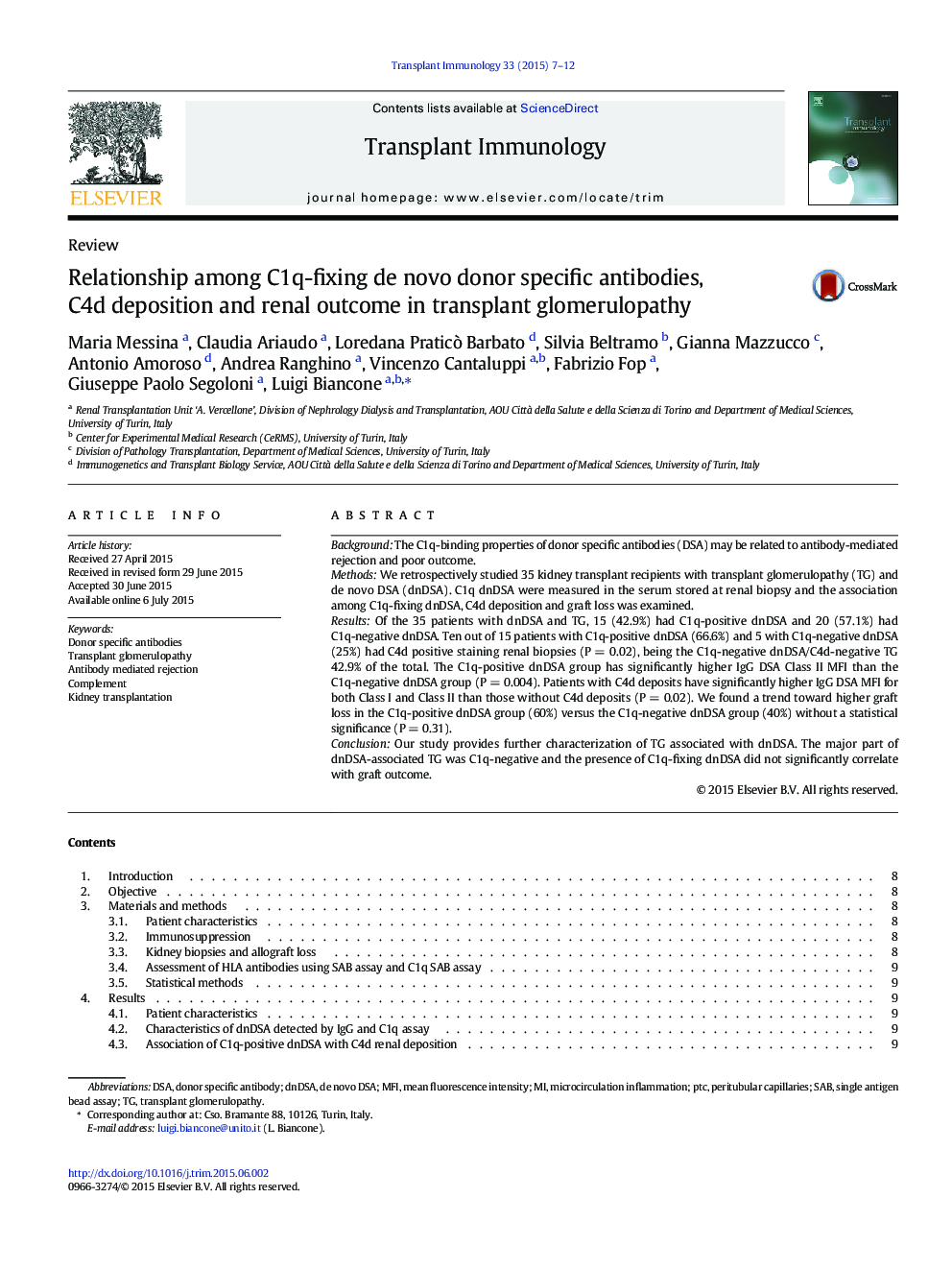| Article ID | Journal | Published Year | Pages | File Type |
|---|---|---|---|---|
| 3392045 | Transplant Immunology | 2015 | 6 Pages |
•Antibody-mediated alloimmune response represents major determinant of late kidney allograft loss.•DSA associated with allograft rejection increases the risk of renal allograft loss.•C1q-binding DSA may be related to antibody mediated rejection and poor outcome.•The pathogenesis of TG remains unclear.
BackgroundThe C1q-binding properties of donor specific antibodies (DSA) may be related to antibody-mediated rejection and poor outcome.MethodsWe retrospectively studied 35 kidney transplant recipients with transplant glomerulopathy (TG) and de novo DSA (dnDSA). C1q dnDSA were measured in the serum stored at renal biopsy and the association among C1q-fixing dnDSA, C4d deposition and graft loss was examined.ResultsOf the 35 patients with dnDSA and TG, 15 (42.9%) had C1q-positive dnDSA and 20 (57.1%) had C1q-negative dnDSA. Ten out of 15 patients with C1q-positive dnDSA (66.6%) and 5 with C1q-negative dnDSA (25%) had C4d positive staining renal biopsies (P = 0.02), being the C1q-negative dnDSA/C4d-negative TG 42.9% of the total. The C1q-positive dnDSA group has significantly higher IgG DSA Class II MFI than the C1q-negative dnDSA group (P = 0.004). Patients with C4d deposits have significantly higher IgG DSA MFI for both Class I and Class II than those without C4d deposits (P = 0.02). We found a trend toward higher graft loss in the C1q-positive dnDSA group (60%) versus the C1q-negative dnDSA group (40%) without a statistical significance (P = 0.31).ConclusionOur study provides further characterization of TG associated with dnDSA. The major part of dnDSA-associated TG was C1q-negative and the presence of C1q-fixing dnDSA did not significantly correlate with graft outcome.
